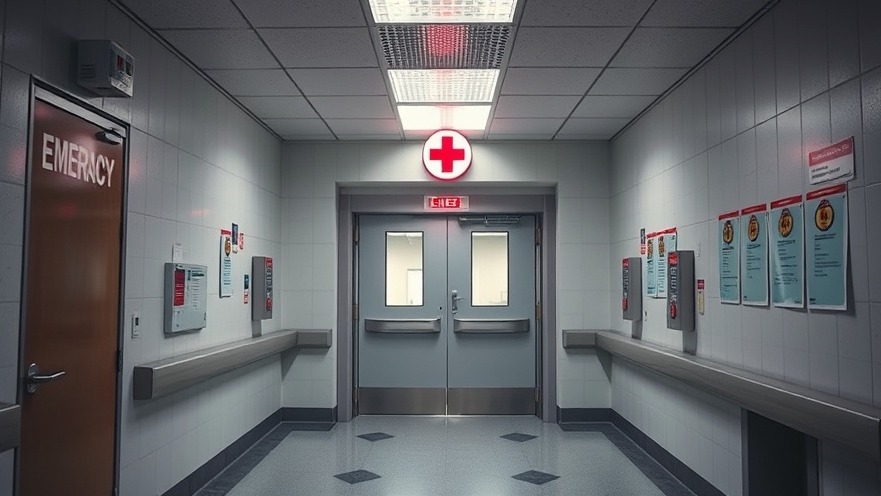
The Impact of Federal Funding Cuts on Health Services
The recent cancellation of the iconic Operation Border Health is raising alarms across the Rio Grande Valley, having served as a lifeline for many low-income families needing critical healthcare services. This event, which began in 1999, has provided an estimated 6,600 people with essential check-ups, vaccinations, and screenings annually. However, the decision to cancel is a direct result of significant cuts to federal funding, particularly affecting Texas' Department of State Health Services.
Understanding the Funding Crisis: A Closer Look at the Numbers
This year, the Centers for Disease Control and Prevention (CDC) slashed about 28% of funding designated for Texas' Public Health Emergency Preparedness program. This drop translated into a loss of approximately $100,000 for Cameron County alone, further reduced the capability of local health departments to manage public health threats effectively. Such drastic cuts not only jeopardize the health services available to the community but also put additional pressure on the already burdened healthcare system.
Health Disparities in the Rio Grande Valley
The Rio Grande Valley consistently ranks high among areas in Texas with the highest uninsured rates. In 2023, a notable percentage of residents lacked health insurance, exacerbating the already precarious health conditions in this region. The inability to access preventive and emergency healthcare services can lead to serious long-term health consequences for these individuals and families.
Counterarguments: The Complexity of Federal Funding
While many in the Rio Grande Valley are understandably upset about the cancellation of Operation Border Health, it’s pivotal to consider broader implications. Advocates for federal cutbacks argue that funds should be allocated to areas where they can bring about significant improvements in health outcomes and that the current allocation system is outdated. This perspective posits a need for a restructuring of priorities within public health funding to facilitate a more balanced distribution nationwide.
Future Predictions: The Possible Long-Term Effects of this Cancellation
In the wake of the cancellation, public health advocates fear for the future. With the ongoing demands of infectious disease control and emergency preparedness, the reduced ability to organize large-scale health initiatives could lead to a resurgence of diseases that have been kept at bay through preventive care. Efforts to improve health literacy and access in underserved communities could also suffer setbacks as health departments struggle to allocate scant resources.
Practical Tips: What Can Communities Do?
As community members grapple with this sudden loss, it’s crucial for them to seek out other local health services. Local clinics may increase service hours or provide additional outreach programs to accommodate those who rely on services like Operation Border Health. Community engagement and advocacy for health policies can also play a vital role in addressing these urgent issues, urging local representatives to push for healthier funding models that prioritize underserved areas.
Conclusion: The Call to Action for Health Advocates
This recent cancellation serves as a stark reminder of the importance of maintaining robust healthcare funding and advocacy efforts. Residents are encouraged to reach out to local health officials, participate in community health advocacy groups, and remain informed about healthcare legislation that impacts them. The loss of Operation Border Health is not just a local issue; it speaks to wider patterns in healthcare access that are relevant to communities across the nation.
 Add Element
Add Element  Add Row
Add Row 



Write A Comment